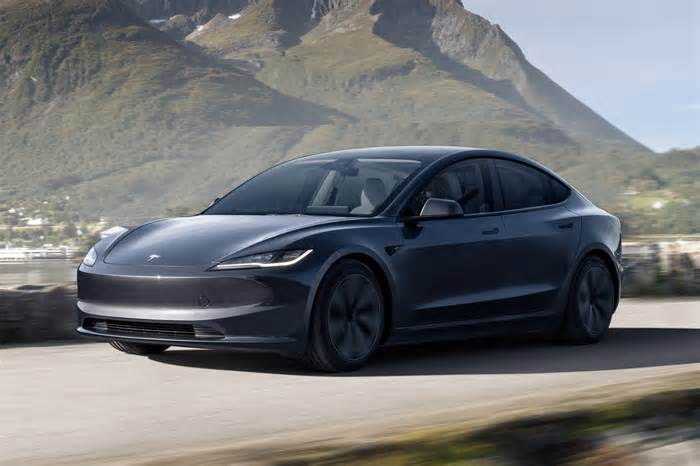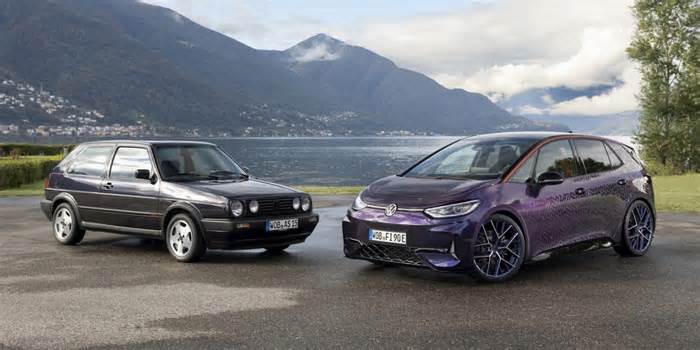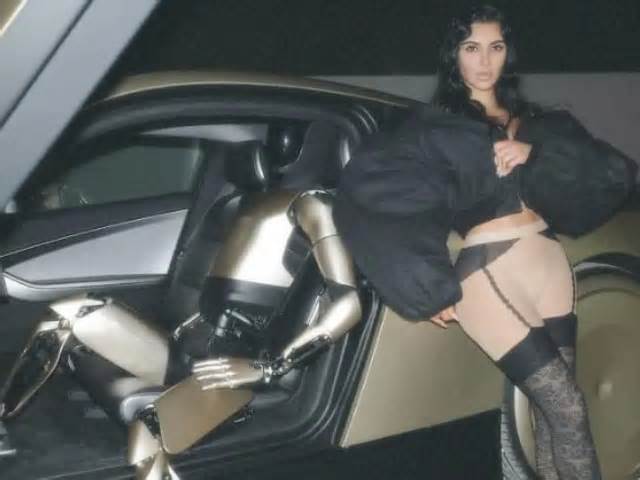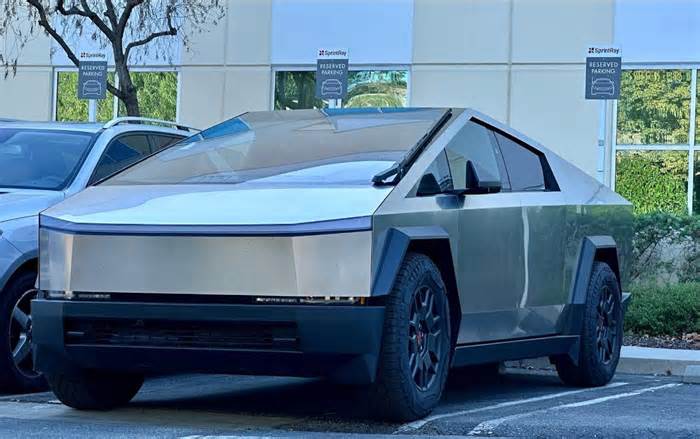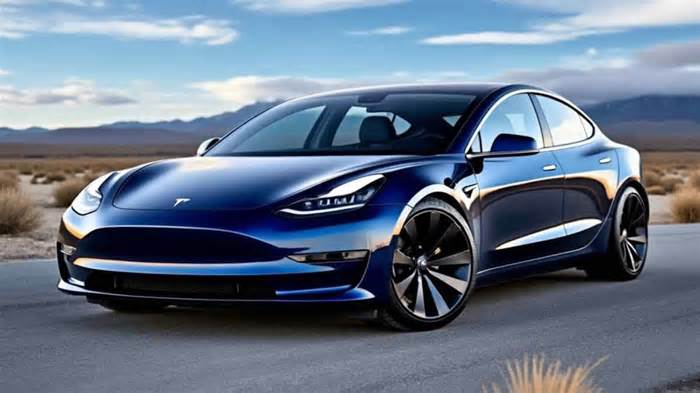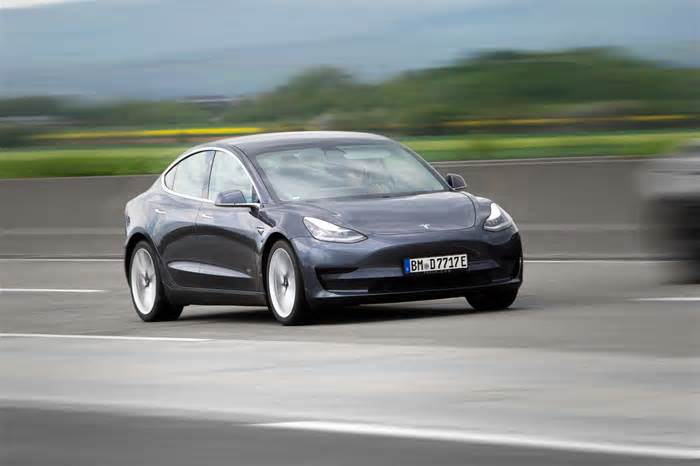
How Tesla stands to benefit from a second Trump presidency
- by USA Today
- Nov 27, 2024
- 0 Comments
- 0 Likes Flag 0 Of 5
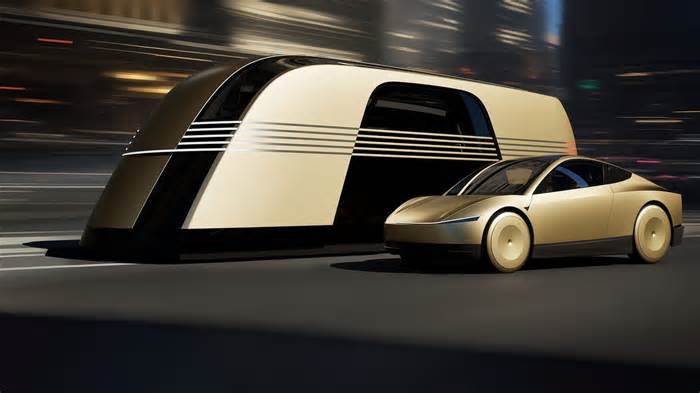
MotorTrend
President-elect Donald Trump has been busy making fresh appointments for his second term in office, and that now comes with news concerning what initiatives all these new government employees will be busy getting to work on. The picture on what impact Trump could have on the auto industry is quickly becoming clear, concerning everything from unions to a looming renegotiated North American trade agreement with Mexico and Canada, as the industry shifts to new technologies like fully electric cars and self-driving vehicles. All of these will impact the auto industry overall — but one company may come out relatively unscathed: Tesla.
Yes, Tesla CEO Elon Musk spent considerable effort (and money) helping to elect Trump, becoming a sort of direct advisor to the president elect in the process. That might buy him some influence in a second Trump administration (and seemingly already has) but it's Trump's proposals for the regulatory environment surrounding vehicles and AI — most of which were registered before Musk's campaign involvement — that stand to help his new buddy Elon's car company. Let's dig in:
Where does Trump stand on self-driving cars?
A Bloomberg article now reports that members of the Trump transition team have already highlighted self-driving vehicle legislation as a priority for the new administration, which will develop a federal framework for regulating self-driving cars on US roads. The article suggests that these new rules would not come through the National Highway Traffic Safety Administration nor the Department of Transportation, but instead that a bipartisan measure is being proposed to the US Congress. This new legislation would create federal rules to allow for mass adoption of self-driving vehicles on public roads.
In Trump's first term, a measure to expand the cap of a company's self-driving cars on the road from 2,500 units to 100,000 passed the House but failed in the Senate, and then failed again as part of other motions. It's possible that's the framework with which the Trump team will resume its efforts in this next administration. Trump has yet to name a new Secretary of Transportation. More:Tesla named 'The Deadliest Car Brand in America', NHTSA data shows
Tesla is the best-positioned, if its claims about the safety of its technology end up true, in terms of technology already implemented, versus competitors like General Motors or Ford, which also only have driver assistance systems on pubic roads for now (GM shut down its Cruise self-driving program temporarily after hitting a pedestrian and misleading investigators, but its tech is apparently not at all close to ready for mainstream execution regardless).
Other self-driving focused companies, like Waymo, do not have the mass production capability of Tesla, though they arguably have more advanced tech on public roads already. Basically, Tesla has the right mix of tech that's already available, or reportedly nearly ready for primetime, with the production capabilities to also adopt and scale next-gen tech like the Cybercab relatively quickly. If Trump's administration moves quickly on passing a new framework, Tesla could execute at least part of its business plans for self-driving vehicles almost immediately, while no other automaker or tech company could say the same. It would give Musk and Tesla the same jumpstart they had with EV technology, which has positioned them at the top of the world so far.
The future will still be completely software-defined, with Over-the-Air update capability a definite priority as more advanced driver assistance and self-driving tech becomes more mainstream and can be sent out to cars already equipped with camera and sensor hardware, especially if there's a fresh government framework for deploying the tech on new cars in the next few years.
Where does Trump stand on electric vehicles?
The next Trump administration has already reportedly threatened to roll back President Biden's current EV rules and tax incentives, likely in favor of no incentives for electrified vehicles at all, as Trump does not support protective or preventative climate and environmental initiatives.
That could mean at least a few years of inflated real-world pricing for EVs, without tax credit relief closing the MSRP gap between EVs and gas-powered equivalents, at least until the costs associated with EVs come down, which could take some time. Expect to see a harder pivot to hybrid vehicles from traditional automakers, which should require fewer EV components but still offer plenty of practical, refinement and efficiency based benefits in the next-gen wave of new cars on the road. We don't expect the major automakers already committed to EVs to backtrack on their current plans too much, as most have already shifted to the complex dynamics of the still-growing EV market, with refocused investments but more EVs still on the way. Remember, automakers — even those that grouse about certain regulations — cycle plan years in advance, so rules see-sawing back and forth isn't likely to inspire immediate reviews of business plans. Money has been spent and research and development focused on building more EVs, meaning automakers with sunk costs in that direction are likely to hold course. One thing that will change, should the rules encouraging EV production be undone, is automakers could stop facing fines for not meeting average fuel economy targets.
Please first to comment
Related Post
Stay Connected
Tweets by elonmuskTo get the latest tweets please make sure you are logged in on X on this browser.
Sponsored
Popular Post
Middle-Aged Dentist Bought a Tesla Cybertruck, Now He Gets All the Attention He Wanted
32 ViewsNov 23 ,2024
Tesla: Buy This Dip, Energy Growth And Margin Recovery Are Vastly Underappreciated
28 ViewsJul 29 ,2024






 Energy
Energy




